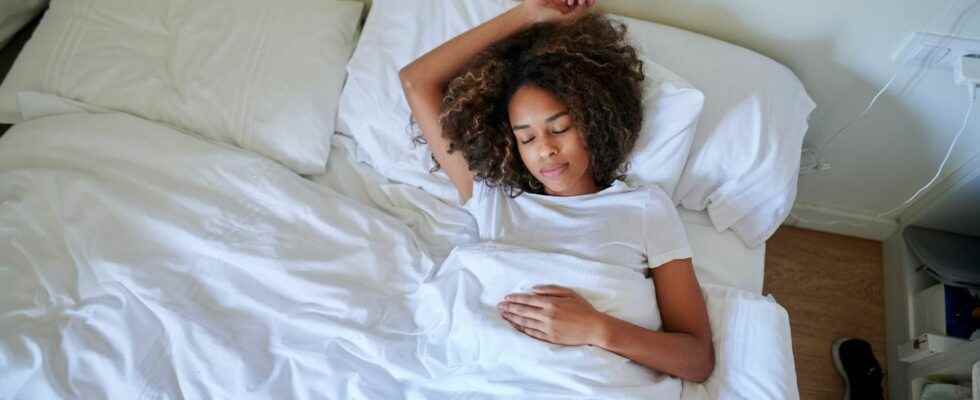Posted ,
Reading 2 mins.
A recent Swedish study reveals that carbonic anhydrase, a molecule used in the treatment of epilepsy, could be used in cases of sleep apnea to reduce the number of breathing pauses during the night.
It would be a real relief for people with sleep apnea. A new study published in the American Journal of Respiratory and Critical Care Medicine, researchers from the University of Gothenburg (Sweden), unveil a new treatment for this syndrome. It would be carbonic anhydrase.
This enzyme, naturally present in the body and used in treatments against epilepsy and glaucoma, would be used to maintain the balance between carbon dioxide and carbonic acid in the body.
Fewer breathing pauses
The study was carried out on 59 patients suffering from moderate to severe sleep apnea. The participants were divided into three groups: one receiving 200mg of a carbonic anhydrase inhibitor, the second 400mg and the third a placebo. Result ? After four weeks of observation, the researchers claim that treatment reduced the number of pauses in breathing During the night.
In contrast, the high-dose group reportedly experienced adverse effects like headaches and shortness of breath. “Among patients who received the 400mg dose, the number of breathing pauses decreased by approximately 20 per hour. For a third of patients only half of their breathing pauses remained and for one in five their number fell by 60%“, says Jan Hedner, professor of pulmonary medicine. This possible treatment could bring new hope to people with this syndrome.
The main factors of sleep apnea
According to Inserm, at least 30% of French people aged 65 and over suffer from sleep apnea. This syndrome would affect more men than women and would be favored by overweight or diabetes. The main risk factors for sleep apnea are: age, obesity, being a man and an anatomical component. It may be that a small jaw or a reduction in the air passage space can promote this syndrome.
Sleep apnea results in chronic fatigue and daytime sleepiness. If you regularly experience any of these symptoms, it is recommended that you consult a doctor and carry out additional examinations.
